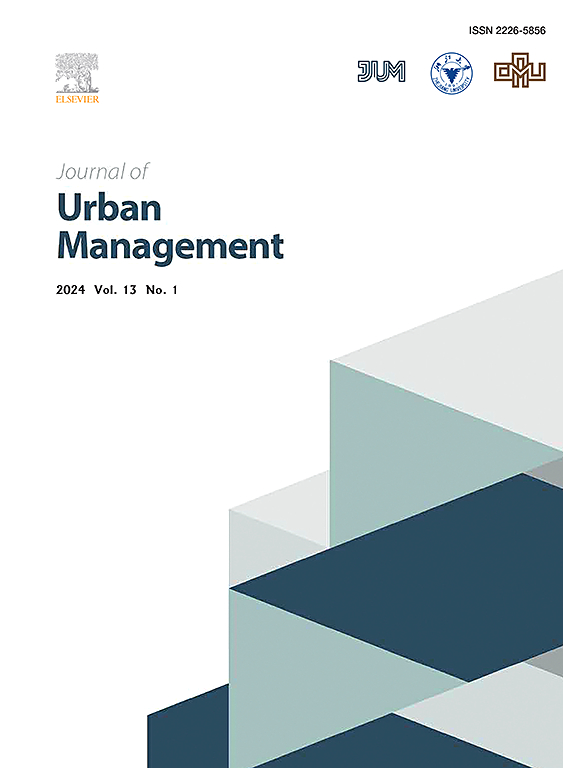Leveraging machine learning to predict traffic jams: Case study of Casablanca, Morocco
IF 5
2区 社会学
Q1 URBAN STUDIES
引用次数: 0
Abstract
Traffic congestion in urban centers not only hampers mobility but also significantly impacts economic activities and environmental sustainability. This study leverages advanced machine learning techniques to analyze and predict traffic jams, utilizing a detailed dataset of 9847 recorded accident pixels from Waze, a popular navigation platform that aggregates real-time and historical traffic data from millions of users. The study is centered on Casablanca, Morocco and serves as a critical case study for urban traffic management. Advanced algorithms including Random Forest (RF), K-Nearest Neighbors (KNN), XGBoost, and Artificial Neural Network (ANN) were evaluated for their effectiveness in congestion prediction. The Random Forest model demonstrated exceptional performance with an accuracy of 96% and an AUC of 0.997, effectively distinguishing between congested and non-congested states. In contrast, the ANN displayed a lower performance with an accuracy of 64% and an AUC of 0.5, indicating challenges in handling complex traffic patterns. These findings underscore the potential of tailored machine learning solutions to enhance urban traffic management and planning, offering a foundation for deploying intelligent traffic systems that could significantly alleviate congestion in major urban areas.
利用机器学习预测交通堵塞:以摩洛哥卡萨布兰卡为例
城市中心的交通拥堵不仅阻碍了人们的出行,而且严重影响了经济活动和环境的可持续性。这项研究利用先进的机器学习技术来分析和预测交通拥堵,利用来自Waze的9847个记录事故像素的详细数据集,Waze是一个流行的导航平台,汇集了数百万用户的实时和历史交通数据。该研究以摩洛哥卡萨布兰卡为中心,是城市交通管理的重要案例研究。对随机森林(RF)、k近邻(KNN)、XGBoost和人工神经网络(ANN)等先进算法在拥塞预测中的有效性进行了评估。随机森林模型表现出优异的性能,准确率为96%,AUC为0.997,有效区分了拥塞和非拥塞状态。相比之下,人工神经网络显示出较低的性能,准确率为64%,AUC为0.5,这表明在处理复杂的交通模式方面存在挑战。这些发现强调了量身定制的机器学习解决方案在加强城市交通管理和规划方面的潜力,为部署智能交通系统提供了基础,可以显著缓解主要城市地区的拥堵。
本文章由计算机程序翻译,如有差异,请以英文原文为准。
求助全文
约1分钟内获得全文
求助全文
来源期刊

Journal of Urban Management
URBAN STUDIES-
CiteScore
9.50
自引率
4.90%
发文量
45
审稿时长
65 days
期刊介绍:
Journal of Urban Management (JUM) is the Official Journal of Zhejiang University and the Chinese Association of Urban Management, an international, peer-reviewed open access journal covering planning, administering, regulating, and governing urban complexity.
JUM has its two-fold aims set to integrate the studies across fields in urban planning and management, as well as to provide a more holistic perspective on problem solving.
1) Explore innovative management skills for taming thorny problems that arise with global urbanization
2) Provide a platform to deal with urban affairs whose solutions must be looked at from an interdisciplinary perspective.
 求助内容:
求助内容: 应助结果提醒方式:
应助结果提醒方式:


